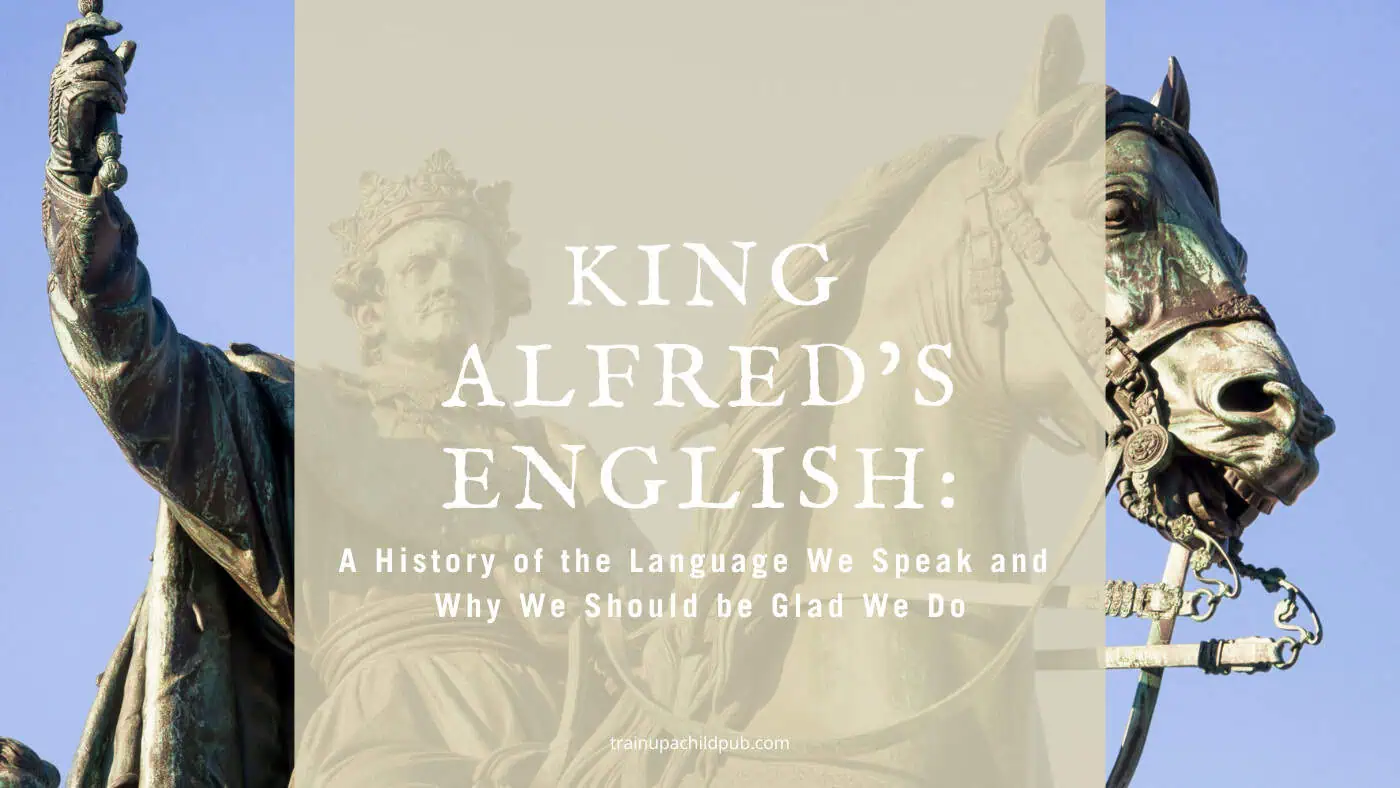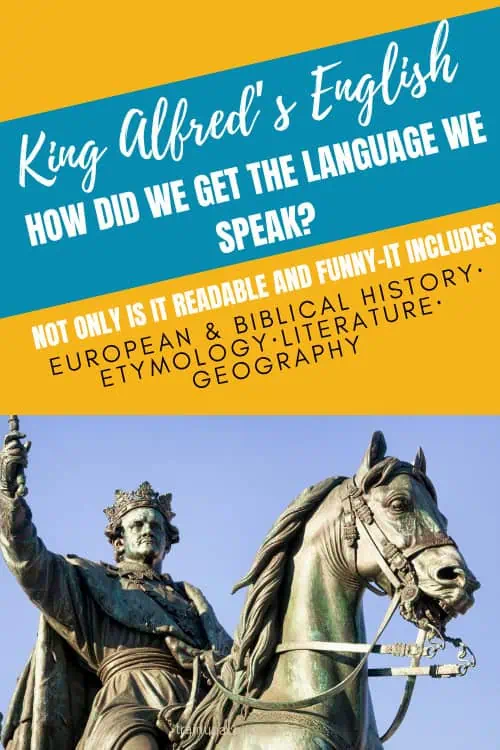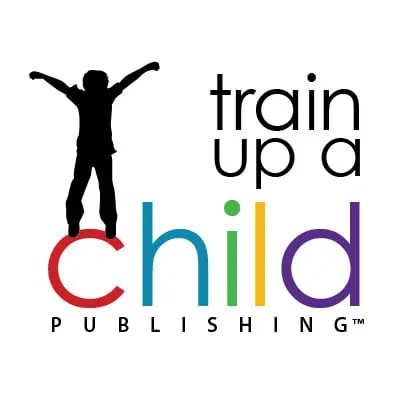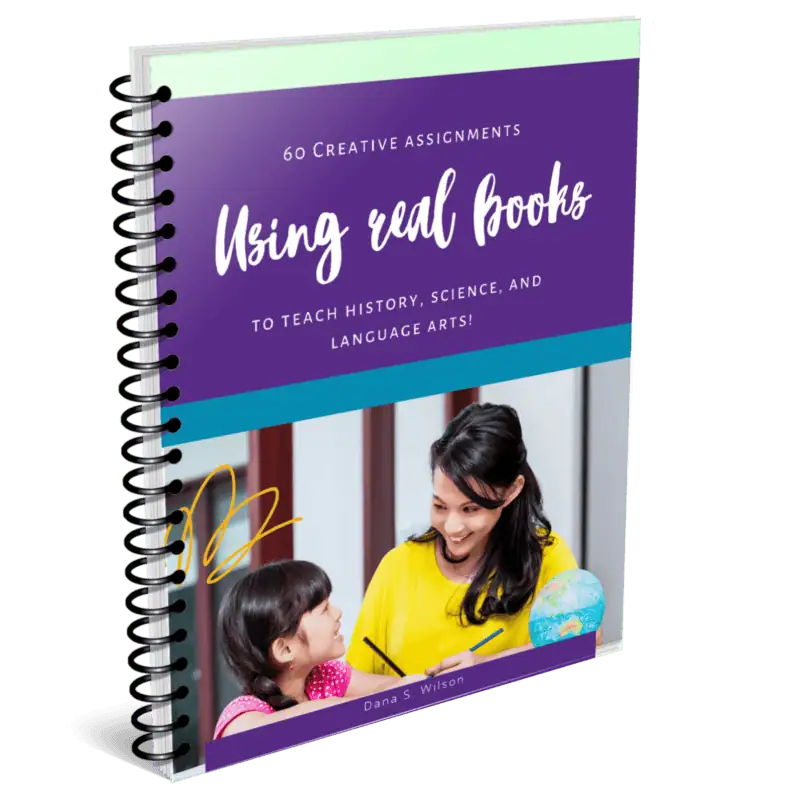King Alfred’s English: a History of the Language We Speak – a Must-read!

King Alfred’s English: A History of the Language We Speak and Why We Should Be Glad We Do, by Laurie J. White is a homeschooling mom’s dream.
Why is it so valuable to have this literary delight on your shelf?
Because this living book covers so many subjects so well and King Alfred’s English appeals to virtually all ages. It includes:
All this in one captivating book. Not only does this excellent read neatly incorporate several subjects in one easy-to-understand volume, but it’s also funny!
This is exactly the kind of book that will bring your kids’ homeschool education to life. And because it covers so much ground, it helps you and your kids understand the flow of history more accurately.
Additionally, it’s saturated with stories and humor, so your whole family will enjoy it.
Editor’s Note: This post includes affiliate links to something we have used and loved. Should you buy something from one of our affiliate links, we could make a few cents commission, at no extra cost to you.
I absolutely loved King Alfred’s English. And I bet you will, too!

Did You Know?
This history of the English language answered several of my questions, such as: Why are Spanish, Italian, French, etc., called Romance languages? (Answer: Because they were all derived from Latin. Rome = Romance).
And here are some other interesting points you may not have known about the English language:
- Why are words in English spelled with so many silent letters? Like the k in knife, knave, and knight and the gh in night, cough, and enough? (Those letters were initially pronounced, but those sounds were eventually dropped as the English language simplified and the English wanted to sound more French and less German.)
- Why do some people write Xmas instead of Christmas? Isn’t this practically the same thing as denying Christ? (No, actually it isn’t the same thing – or at least it wasn’t in the beginning. It was Emperor Constantine who used the “X”, the traditional Greek initial ‘Chi,’ to stand for the first letter of “Christ” in Greek.)
- Why is the same country sometimes called “Britain” and at other times called “England”? (Because the names actually portray two different people groups who lived in the same place but at different times.)
- Who introduced the idea of B.C. and A.D. to describe time? (The Venerable Bede, called the Father of English history, is credited with this concept.)
A former homeschooling mom herself, the author organizes her book around four major periods of change in the English language that she calls “language invasions.” These are major shifts in English caused by the changing political or cultural climates during the history of Britain. I mean England. Each of these ‘invasions’ added hundreds of words from various cultures to our language.
How Does the English Language Stack Up?
Ever wonder how the English language matches others in terms of the sheer number of words? The author compared a few other countries’ dictionaries for a clue.
- French dictionary – 100,000 words
- Russian dictionary – 130,000 words
- German dictionary – 185,000 words
Are you ready?
- English dictionary – a whopping 615,000 words!
I had no idea! Did you?
King Alfred’s English Makes European History Clear
As the author defines the shifts and changes in English, she describes the historical and cultural changes, as well, and brings us along for the ride.
The sometimes complicated history of Europe overall and England, particularly, becomes so much clearer reading this book!
As well, her chapters on the Reformation are enlightening. They help us understand more clearly the Reformation’s impact on the European culture of the time and the generations around the world that followed.
Along the way, Mrs. White interjects many fascinating nuggets.
For example, after describing how experts gauge the authenticity and reliability of ancient texts (interesting in itself!), the author includes a comparison of the New Testament with other ancient writings, such as Homer’s Iliad and Julius Caesar’s Gallic Wars.
For anyone who regularly shares with those who doubt the truth of Scripture, you won’t want to miss this section! A concluding quote from the author on the subject:
…anyone who does some honest research will be confronted with the fact that we are in possession of a truly astounding quantity of reliable ancient manuscripts all of which attest to the accuracy of our New Testament. You can argue whether the events took place, but you just can’t argue that these really are the writings of the men who claimed to have witnessed them. — Laurie J. White, author of King Alfred’s English
How William Tyndale influenced English
Mrs. White also introduces a topic that was new to me. She describes how William Tyndale, through his English translation of the Bible, both promoted the Reformation cause and influenced our language.
Some of Tyndale’s word choices and phrases have now seeped into the fabric of our culture. Familiar phrasings such as “eat, drink, and be merry,” “fight the good fight,” and “the salt of the earth” are among Tyndale’s memorable contributions to our literary heritage, according to Mrs. White.
![cs lewis quote no book is really worth reading at 10 that [isn't] worth reading at 50](https://trainupachildpub.com/wp-content/uploads/2009/11/how-to-teach-narration-cs-lewis-quote.webp)
King Alfred’s English is suited for everyone
Children from late elementary through high school will enjoy listening to this as a family read-aloud, and it can be assigned as an independent reader from late middle school on up to your high school student studying British history or literature. And I promise – you will learn and enjoy it as much as they do.
Editor’s note: In the interests of full disclosure, I received a copy of this book from the author for review purposes, although the opinions given in the review are totally my own.
The C.S. Lewis quote above Applies to King Arthur’s English. Do yourself a favor and don’t miss it!
Enjoy!



My children often quiz me about why English is so stupid -kn, gh, gn, silent b’s etc. My answers aren’t always helpful so maybe I need this book.
You should! It finally gave me an answer to those questions I used to get from my kids as well. 🙂 Thank you for sharing, Carol!
This looks like a really interesting book for English “nerds” 🙂
Absolutely, Jack. And I’d venture to say that it is so interesting that those who are not already may even become English “nerds.” 🙂
This looks good! I look forward to reading it.
You will enjoy it!
This sounds like a neat read. I love the language arts half of education so much and would love to use this as an interest-promoting book for my kiddos. They love facts and trivia like some you mentioned!
I loved it covering so many bases in language arts and history simultaneously. I bet your kids would love it!
I have always been fascinated with languages and word origins. It sounds like a worthwhile read!
Me, too, Lori. I enjoyed it so much I’m sure I’ll reread it. So informative!
This looks good! I look forward to reading it. Thanks for the summary.
From joy to joy,
Nancy
You’re quite welcome, Nancy! I’m sure you’ll enjoy this living book! Thanks for sharing.
Love this post! I will definitely get this book, and I know my daughter will love reading it….but she will have to wrestle it out of my hands first.
Thank you for participating in the CM Carnival! Will you be submitting a post for the next Carnival? H
Hi H,
Glad you enjoyed the post! King Alfred’s English is the perfect example of a living book. 🙂 You will definitely enjoy it as much as your daughter.
You’re welcome! I hope to submit another post soon.
Thank you again for hosting!
Dana
Got here through the CM Carnival. Thanks for the recommendation. I teach high school students and this is a wonderful book!
I agree! Our family loved it. Thanks for stopping by, Bonnie!